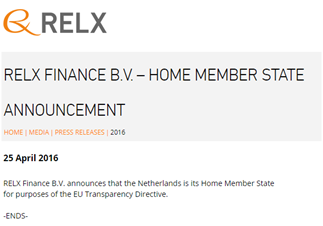Shareholder Disclosure rules typically require disclosure to a competent authority and / or to the Issuer.
Typically, disclosure obligations are based on the jurisdictions where the (underlying) stock are admitted to trading.
Simple Cases
Determining the relevant competent authority is in some cases straight-forward, including where:



